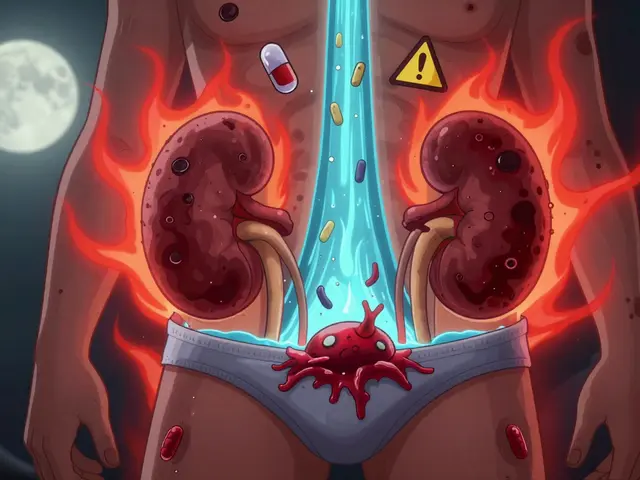Priligy alternatives: practical options for premature ejaculation
If dapoxetine (Priligy) didn’t work for you or isn’t available, you still have good choices. Some people switch to other medicines, others try creams or techniques, and many combine methods. Below I list what actually helps, how each option is used, and what to watch for.
Medicines that can help
Short-acting dapoxetine is one approved on-demand SSRI. Other drugs used off-label include daily SSRIs like paroxetine, sertraline, and fluoxetine. These are usually taken every day and can raise time to ejaculation after 1–2 weeks. Dosing varies: for example, paroxetine often starts low (10–20 mg daily) and is adjusted by your doctor. Side effects can include nausea, tiredness, and reduced libido.
Topical anesthetics are a non-systemic option. Lidocaine-prilocaine creams or sprays are applied to the penis about 10–20 minutes before sex, then wiped off. They numb the glans and often delay ejaculation without systemic side effects. Use only products made for sexual use and follow instructions to avoid over-numbing your partner.
Tramadol is another alternative sometimes used on-demand (25–50 mg a few hours before sex). It can delay ejaculation but carries risks: dependence, dizziness, and a chance of seizures, especially with higher doses or when mixed with SSRIs. It’s not a first-line choice and needs careful medical supervision.
PDE5 inhibitors like sildenafil (Viagra) and tadalafil can help men who have both premature ejaculation and erectile issues. They don’t directly delay ejaculation much, but easing erection worries often reduces speed of climax. Doctors sometimes combine a PDE5 inhibitor with an SSRI or topical anesthetic for better results.
Non-drug approaches that work
Behavioral techniques are low-risk and worth trying. The stop-start method and the squeeze technique teach you control. Practicing with a partner takes time but often gives durable gains. Pelvic floor exercises (Kegels) combined with learning to relax between contractions can also help; a pelvic floor physio can give practical guidance.
Condoms (especially thicker or desensitizing types) reduce sensation and commonly delay ejaculation. Counseling or sex therapy helps when anxiety, relationship issues, or performance pressure are part of the problem. Cognitive-behavioral therapy and couples work often improve outcomes faster than you expect.
Pick an option based on side effects, how fast you want results, and what your doctor recommends. Don’t mix medications without medical advice—combinations can raise risks like serotonin syndrome or drug interactions. If you’re unsure, talk to a healthcare provider who knows sexual medicine. Small changes—one therapy or a simple technique—can make a big difference.
Best Priligy Alternatives: SSRIs, Sprays & Therapies for Premature Ejaculation (2025 Guide)
Uncover the latest Priligy alternatives in 2025, from SSRIs to sprays and natural methods. Read real tips, reviews, and the science behind each option.






